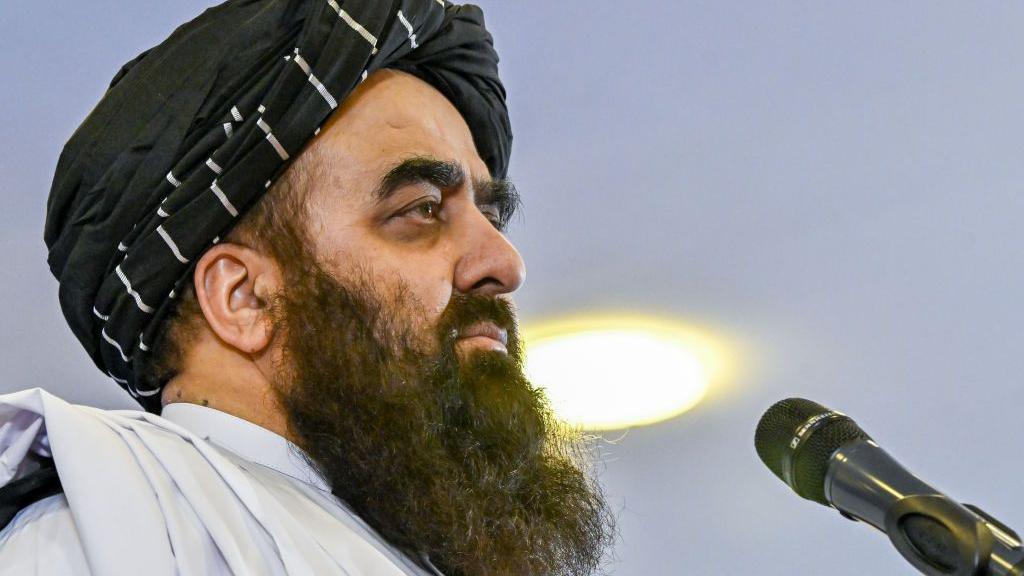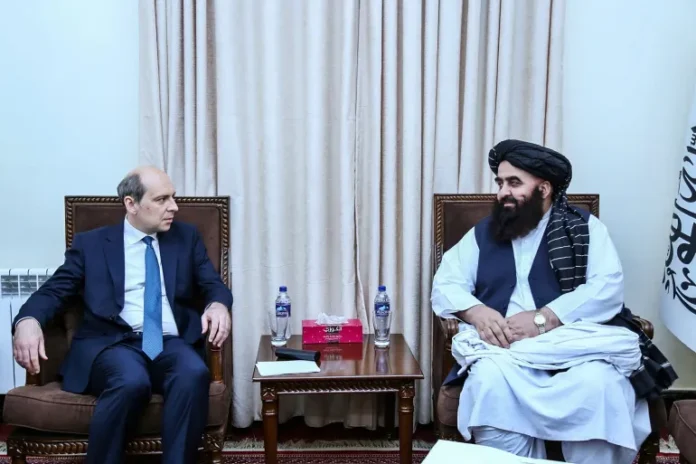Russia becomes first state to recognise Afghanistan’s Taliban government, marking a seismic shift in global diplomacy and potentially opening the door for broader international engagement with the regime. The announcement was made during a high-level meeting in Kabul between Russian Ambassador Dmitry Zhirnov and Afghan Foreign Minister Amir Khan Muttaqi, where Moscow formally conveyed its decision to recognise the Islamic Emirate of Afghanistan.
The move makes Russia the first country to officially acknowledge the Taliban-led administration since it seized power in August 2021 following the withdrawal of U.S. and NATO forces. Afghan officials hailed the recognition as a “courageous” and “historic” decision, with Muttaqi calling it the beginning of a “new phase of positive relations, mutual respect, and constructive engagement”.
Russia’s Foreign Ministry confirmed the recognition and emphasized its intention to deepen bilateral cooperation in areas such as energy, transportation, agriculture, and infrastructure. The ministry also reiterated its commitment to supporting Afghanistan in combating terrorism and drug trafficking, two issues that have long plagued the region.
This diplomatic milestone follows a series of calculated steps by Moscow to normalize relations with the Taliban. In April 2025, Russia removed the group from its list of terrorist organizations, a move widely interpreted as a precursor to formal recognition. The Taliban’s flag was recently raised over the Afghan embassy in Moscow for the first time since the group returned to power, and Russia has already accepted the credentials of the newly appointed Taliban ambassador, Gul Hassan.
The recognition is not without controversy. Western governments and human rights organizations have condemned the Taliban for its harsh interpretation of Islamic law, particularly its treatment of women and girls. Since 2021, the regime has barred women from secondary and higher education, restricted their movement without male guardians, and imposed strict dress codes. The United Nations has described these policies as “gender apartheid” and continues to withhold formal recognition of the Taliban government.

Despite these concerns, Russia has positioned itself as a pragmatic actor in the region, prioritizing stability and economic opportunity over ideological alignment. Russian officials argue that engaging with the Taliban is essential for regional security and for countering the threat posed by Islamic State Khorasan Province (ISIS-K), a rival extremist group responsible for attacks in both Afghanistan and Russia.
The two countries share a complex history. The Soviet Union’s 1979 invasion of Afghanistan led to a brutal nine-year war that cost Moscow over 15,000 lives and contributed to the USSR’s eventual collapse. Yet in recent years, Russia has emerged as one of the few global powers willing to engage the Taliban diplomatically. It was also the first to sign an international economic deal with the group in 2022, agreeing to supply oil, gas, and wheat to Afghanistan.
While China, Pakistan, and the UAE have accepted Taliban-appointed ambassadors, none have taken the step of formal recognition. Russia’s decision could now set a precedent, potentially encouraging other countries to follow suit. Afghan officials hope the move will unlock foreign investment and ease the country’s isolation from the global financial system, which has been crippled by sanctions and the freezing of nearly $9 billion in assets since 2021.
As the world watches closely, Russia’s recognition of the Taliban government may reshape the geopolitical landscape of Central and South Asia. Whether it leads to broader legitimacy for the Taliban or deepens global divisions remains to be seen—but for now, Moscow has taken the lead in a diplomatic gamble with far-reaching implications.


